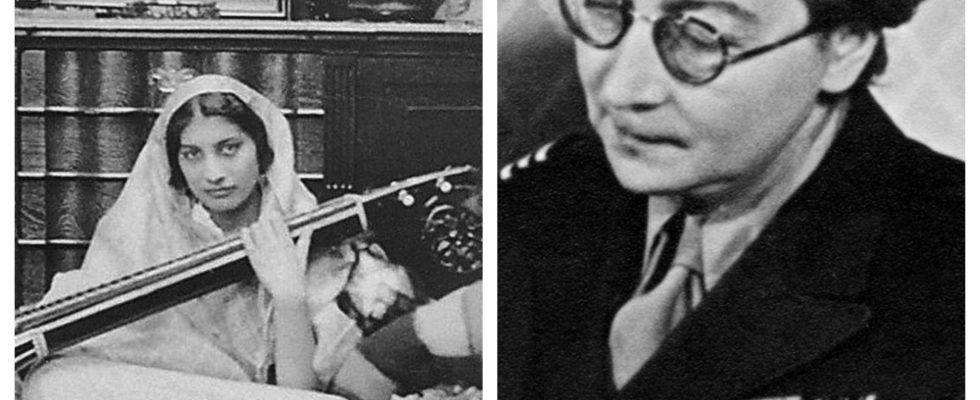Not sure that the spies have a particular look or a particularly rebellious temperament, it is on the other hand obvious that Noor Inayat Khan and Rose Valland offer profiles at the antipodes of Ian Fleming, Kim Philby and other Mata Hari. The first, daughter of an Indian poet and musician Sufi and a British woman, became an apostle of peace at a very young age, the second, born in Isère in the family of a blacksmith, is a “simple” attached conservation at the Jeu de Paume museum.
What do these two women have in common, anti-heroines on paper? Flawless righteousness, exemplary courage, unfeigned humility, and a tireless fight against Nazism. At the risk of life. If the French Rose Valland fell asleep in September 1980 at the age of 81, the Indo-Briton Noor Inayat Khan died at the age of 30 in September 1944 at the Dachau concentration camp. Unknown to the general public, they benefit from a nice recognition thanks to two empathetic fictionalized biographies, soberly titled Noor And Rose Vallandwhich give them flesh, “blood and tears”.
Born in Moscow in 1914, early childhood in England, adolescence in Suresnes, near Paris, studies in psychology at the Sorbonne… despite her wandering years, Noor was not an adventurer when she arrived in London in June 1940, but this fan of Joan of Arc is driven by a serious desire to do battle with Nazi Germany. The Swiss novelist and translator essayist Etienne Barilier repeatedly reminds us: Noor Inayat Khan is incapable of lying and not really good at concealment, so many certain handicaps to the “job” of spy – the frail young woman with luminous eyes also misses his exam of “resistance to interrogations”. Still, this emeritus harpist is an excellent radio operator and the Special Operations Executive created by Churchill lacks nimble fingers mastering Morse code, coding and all the technique of radio links. So here she is under the false identity of Jeanne-Marie Rénier parachuted in mid-June 1943 in France. Hardly had she set foot in Paris when she learned that her network was partially decimated. While she was strongly advised to return, she persisted, rendered many services, ended up being arrested by the Gestapo, tried to escape, was imprisoned at the end of November in Pforzheim prison before dying in Dachau… without having denounced anybody !
shadow women
Rose Valland is also inhabited by an exceptional force. For eight years now, this single scholarship student who looks like a teacher has been working at the Jeu de Paume museum when Goering and his henchmen (including Bruno Lohse) extort everything that occupied Europe conceals in works of art (and which has no not secured in some castles). Looting, notably from the private collections of wealthy Jewish families (Rothschild, David-Weill, Wildenstein, Seligmann), which the Germans stored in the museum at Place de la Concorde before transporting it across the Rhine, among others to Carinhall, Goering’s private lair. Spotted by Jacques Jaujard, the head of the national museums for his composure and his photographic memory, Rose Valland was given the task of listing all the entries in the museum.
Instinctively, she plays the erased, conceals her understanding of German, sticks her ear to doors, rummages in the baskets, and communicates her notes to Jaulard every week. Similarly, the journalist Jennifer Lesieur, biographer of Jack London or Alexandra David-Néel, knows all about the movements of master paintings, the composition of the looted collections and the destination of the works in the various German and Czech deposits. Or Austrians. As meticulous as Rose Valland, she enthusiastically reports the feats of arms of the curator, who will never stop, after the war, helping to recover the works of art (61,233 are to her credit) in the various hiding places, from castles to copper or salt mines. Rose Valland and Noor Inayat Khan, when women in the shadows shine…
Noor, by Etienne Barilier. Phoebus, 384 p., €22.50.
Rose Valland, by Jennifer Lesieur. Robert Laffont, 240 pages, €19.50.
